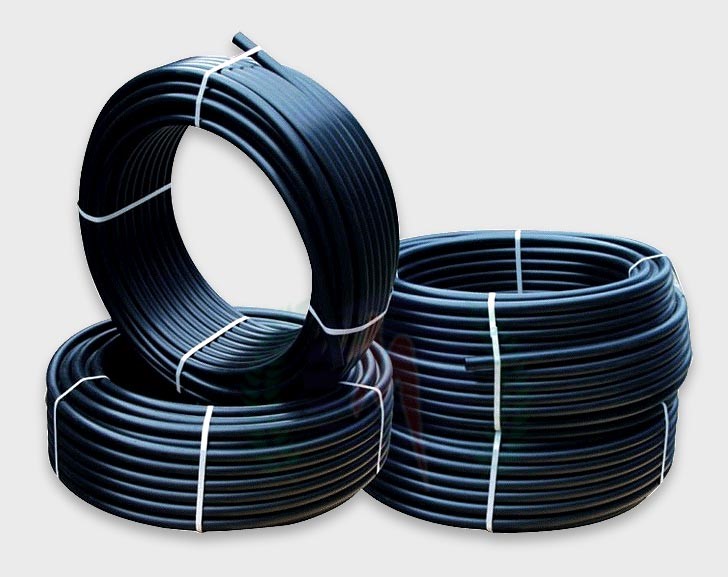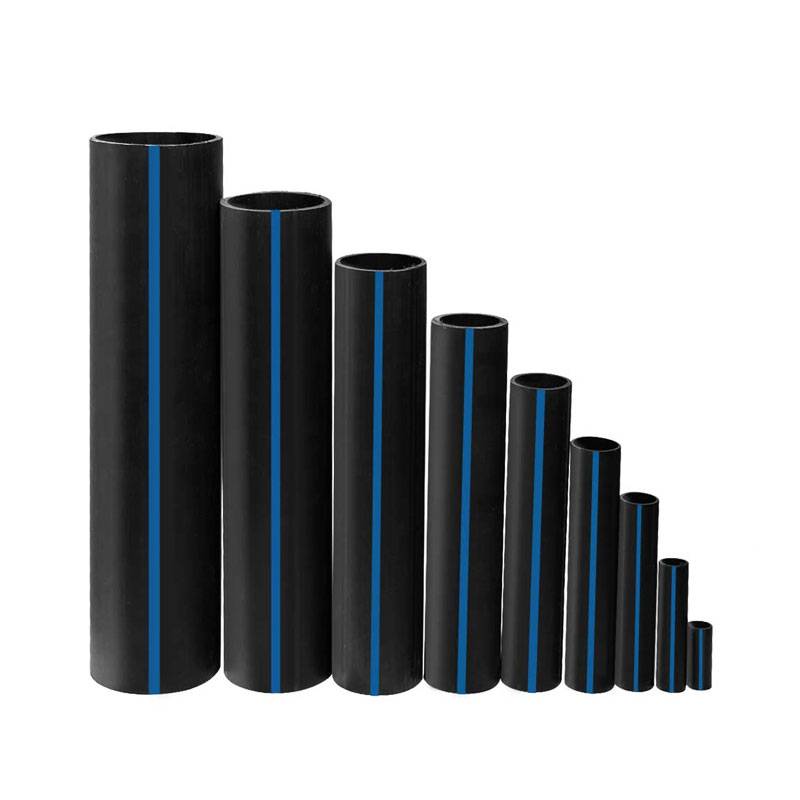Texas hdpe pipe manufacturer: Sustainable Innovations
Comprehending the Trick Conveniences of HDPE Pipeline for Water and Wastewater Monitoring
The usage of HDPE pipe in water and wastewater management provides countless advantages that warrant factor to consider. Its remarkable longevity and lengthy life expectancy make it a preferred option for numerous tasks. Furthermore, the material's resistance to corrosion and chemical damage boosts its dependability in different settings. Nevertheless, the benefits prolong beyond simply long life and resistance. Exploring its cost-effectiveness and ecological effect exposes also much more compelling factors for its widespread fostering in modern-day facilities
Phenomenal Resilience and Longevity

HDPE pipeline attracts attention for its extraordinary durability and long life, making it a preferred selection in water management systems. Created from high-density polyethylene, these pipes can endure considerable pressure and tension, ensuring dependable efficiency in time. Their durable nature permits them to withstand severe ecological problems, including temperature level changes and soil activities, which can create various other materials to fall short.
The life-span of HDPE pipelines frequently exceeds 50 years, providing a cost-efficient option for districts and sectors alike. In addition, the material's lightweight buildings streamline installation, decreasing labor costs and durations. This durability decreases the demand for frequent repair work or substitutes, even more enhancing its financial allure.
In water administration applications, the integrity of HDPE pipes implies fewer disruptions and enhanced service connection, making them indispensable to lasting facilities growth. The mix of sturdiness and longevity solidifies HDPE's function as a foundation in effective water administration remedies.

Resistance to Deterioration and Chemical Damage
While numerous materials catch corrosion and chemical damages in time, HDPE pipes exhibit impressive resistance, making them ideal for different water monitoring applications. This strength comes from the molecular structure of high-density polyethylene, which is naturally non-reactive and does not wear away like metals or degrade from direct exposure to rough chemicals. Consequently, HDPE is extremely effective in environments with aggressive compounds, such as wastewater systems that might have acids, bases, and natural solvents.
In addition, HDPE pipelines can hold up against ecological factors such as dirt level of acidity and saline conditions, additionally improving their viability for varied applications (Texas hdpe pipe manufacturer). Their capability to maintain structural integrity in time minimizes the threat of leakages and failings, which is crucial in guaranteeing the safety and security and reliability of water circulation and wastewater monitoring systems. The resistance to deterioration and chemical damage significantly adds to the overall efficiency and durability of HDPE piping services.
Cost-Effectiveness and Economic Benefits
When taking into consideration the monetary ramifications of water monitoring systems, the cost-effectiveness of HDPE pipes ends up being noticeable. These pipes supply lower installation and upkeep prices contrasted to traditional products like metal or concrete. Their light-weight nature simplifies transportation and installation, leading to minimized labor expenses. Additionally, HDPE pipelines show a long life-span, commonly exceeding half a century, which translates to less substitutes and long-term cost savings.
Moreover, the resistance of HDPE to corrosion and chemical damage reduces the need for expensive fixings and substitutes. The pipes likewise support reliable water flow, minimizing power costs related to pumping systems. By minimizing leaks and water loss, HDPE pipelines add to considerable financial benefits for towns and markets alike. Generally, the preliminary investment in HDPE piping can produce substantial financial returns over the life-span of the water monitoring system, making it a sensible option for sustainable facilities growth.
Environmental Sustainability and Decreased Impact

Convenience and Adaptability in Installment
As a result of their one-of-a-kind properties, HDPE pipelines use exceptional flexibility and flexibility in installation, making them appropriate for a large range of applications. Their light-weight nature permits easier handling and transportation, decreasing labor prices and setup time. HDPE pipes can be bent and shaped to fit sewer line locator numerous terrains and project requirements, which is particularly valuable in challenging atmospheres.
Furthermore, their resistance to corrosion and chemical damages permits for setup in varied setups without the need for specialized protective finishes. The ability to fuse joints produces a constant, leak-free system, improving the total stability and dependability of the installation. HDPE's flexibility additionally accommodates ground activity, minimizing the risk of damages in locations susceptible to shifting dirt. Generally, these attributes make HDPE pipelines not only flexible however additionally a preferred choice for water and wastewater administration systems.
Regularly Asked Questions
How Does HDPE Pipe Compare to PVC in Water Management Applications?
HDPE pipeline offers premium flexibility, resistance to rust, and resilience compared to PVC. Its lighter weight assists in hot tapping pipeline easier setup, while its lengthy life-span decreases replacement costs, making HDPE a preferred option in water management applications.
What Is the Life-span of HDPE Pipeline Under Typical Conditions?
Under common problems, HDPE pipes can have a lifespan ranging from 50 to 100 years. Their resilience and resistance to deterioration add to their lasting efficiency in various applications, making them a dependable selection for framework.
Are HDPE Pipeline Recyclable After Their Life Span?
Yes, HDPE pipes are recyclable after their life span. American Plastics HDPE Pipe Manufacturing. They can be refined and repurposed right into brand-new products, greatly decreasing ecological impact and promoting sustainability within the sector, making them an environment-friendly selection for piping services
What Is the Installment Refine for HDPE Pipes?
The installment process for HDPE pipelines involves website preparation, trenching, pipeline fusion or mechanical joining, backfilling, and pressure testing. Correct methods assure a long lasting and efficient system for transferring water and wastewater efficiently.
Can HDPE Pipeline Be Used for Both Drinkable and Non-Potable Water Solutions?
Yes, HDPE pipes can be utilized for both drinkable and non-potable water systems. Their versatility, longevity, and resistance to deterioration make them appropriate for various applications, ensuring risk-free and effective transport of water in different contexts.